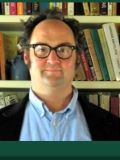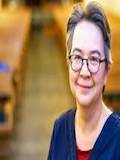| ABOUT THIS COMMUNITY |
| MEET THE COMMITTEE |
|

Michelle Benegas, Chair
|
Michelle Benegas, Ph.D., is an associate professor of TESOL at Hamline University. Benegas is the principal investigator of theELM (English Learners in the Mainstream) Project, a US Department of Education funded initiative that seeks to ensure that all teachers are prepared to meet the needs of English learners through teacher leadership. Benegas believes that teacher leadership is the future of our field. When ESL teachers support their colleagues in promising practices for English learners, it results in an uninterrupted day of language learning for all students. |
|

Kate Mastruserio Reynolds,
Chair-Elect
|
Dr. Kate Mastruserio Reynolds is a Professor of TESOL/Literacy and is currently Chair-elect of the TEIS. When teachers at any grade level are asked to conform to a curriculum that they have not had any input into or cannot modify toward their specific learner population, it is difficult to make the material applicable to the learners. When educational policies are not informed by appropriate educational research and/ or vetted through discussion with teachers and other stakeholders, the policies can be counterproductive and inappropriate for learners’ language acquisition/development. These are just two examples where teacher leadership is important. Therefore, teacher leadership from my perspective is when teachers are actively involved in decisions about policy, planning, curriculum, materials, instructional practices, assessments, and placement. The active involvement of educators in all aspects of education means that teachers should be in guidance and leadership roles and these roles should be valued within their work responsibility sets, much like it is for professors who allocate part of their work to service in the school and profession. Further, teachers leaders need to be considered valued and respected members of school staff when involved in leadership work. |
|

James Whiting,
Chair-Elect-Elect
|
I am the Chair elect-elect of the TEIS. I am on the faculty at Plymouth State University in Plymouth, New Hampshire, where I also coordinate the graduate program in TESOL. Over the last 30 years I’ve taught English learners and prepared English language teachers in the US and overseas in Spain, Russia, Quebec and Panama where I was a Fulbright Scholar. My research interests include advocacy in TESOL, and English language learners in low-incidence settings. Exposing students to new ideas while at the same time being open to these as well, is at the heart of effective teacher leadership. |
|

Amber Warren,
Community Manager
|
Amber Warren has been a language teacher and language teacher educator for 17 years. This year, I am excited to be the Community Manager for TEIS. As a teacher educator, one of my goals is to is to prepare teachers as leaders who are in turn prepared to advocate for their students in classrooms, schools, and beyond. This means supporting teachers in developing knowledge of content and pedagogical knowledge, a commitment to equitable instructional practices, and the capacity to share this commitment and knowledge with colleagues and stakeholders. |
|

Bridget Schvarcz,
Newsletter Editor
|
Bridget Schvarcz is the head of the English Unit at Afeka Academic College of Engineering and a teacher educator for the Israeli Ministry of Education, Department of Professional Development of Teaching Staff. She currently serves as the chair of the English Teachers’ Association of Israel – a proud TESOL affiliate – and as an editor of the TEIS Newsletter. Her research interests are formal semantics, linguistic landscape and language teacher identity. Effective teacher leadership in her eyes springs from infinite devotion to the teaching profession. As a leader, her raison d'être is to inspire colleagues’ professional growth and improvement of teaching practices. She believes in collaboration, communication and teamwork; thus, she practices a democratic style of leadership in all of her roles. |
|

Khanh-Duc Kuttig,
Newsletter Editor
|
Khanh-Duc Kuttig teaches English language in the Department of English at the University of Siegen.Khanh-Duc sees herself first and foremost as a language teacher and has a strong interest in developing teacher language proficiency and 21st century skills in her pre-service teachers, all of whom are non-native speakers of English. As 2021 TESOL / NGL Teacher of the Year, Khanh-Duc believes that teacher leadership is often seen as something more managerial and administrative in nature. However, teachers also have leadership roles in their own classrooms and communities. Communication skills, a willingness to listen, learn and reflect and then act accordingly are at the heart of successful teacher leadership in any context. | |
|
|

